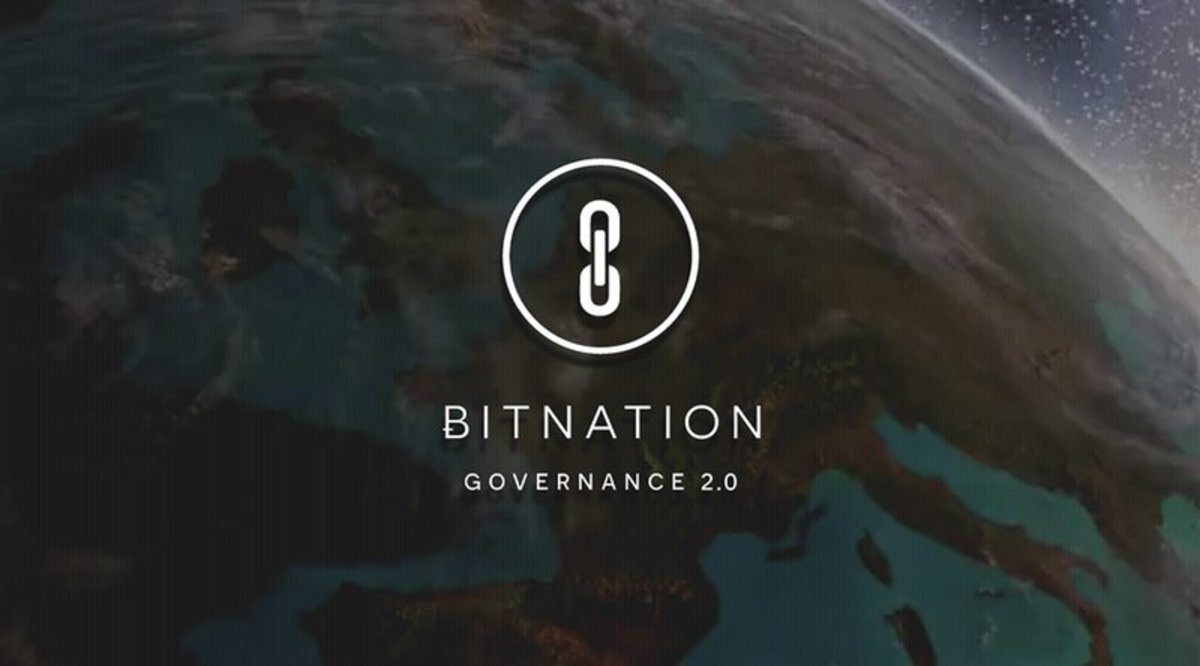
Bitnation, a blockchain-based “Governance 2.0” initiative with a collaborative platform for DIY governance, has launched its Decentralised Borderless Voluntary Nation (DBVN) Constitution using Ethereum, International Business Timesreports.
The Bitnation Constitution was launched at a public event in Rio de Janeiro, hosted by Bitnation founder Susanne Tarkowski Tempelhof and Alex Van de Sande, lead designer at the Ethereum Foundation. The video of the Bitnation Constitution launch event, promoted on Facebook as “Create Your Own Nation In 140 Lines Of Code,” was streamed live and is now online on YouTube.
Bitnation launched several pathfinders and proofs of concept including the first marriage registered on the blockchain and the first blockchain passport. The organization also developed and tested workable DIY land titles recorded on the blockchain in Ghana, where 70 percent of land lacks proper title, preventing investment and borrowing in real property markets. In November, Bitnation partnered with the Estonian government to offer a public notary service to Estonian e-residents based on blockchain technology.
In a recent U.N. working paper covered by Bitcoin Magazine, Brett Scott, the author of The Heretic’s Guide to Global Finance: Hacking the Future of Money, praised Bitnation’s pioneering work on blockchain-based land-titles. “Bitnation has presented a vision – at least in principle – of hosting completely alternative state institutions (such as security and legal institutions) on blockchain systems, describing states as governance service providers that might be outcompeted by technological platforms,” he noted.
At the same time, Scott, whose vision is centered on a communitarian, social-libertarian approach, criticized Bitnation’s vision of a future stateless society as an extreme techno-libertarian position. According to Scott, modern democratic states can represent the interests of all.
Bitcoin Magazine reached out to Tarkowski Tempelhof and asked about her reactions to Scott’s paper.
"The left-versus-right-wing libertarian debate is rather pointless, in my opinion, because on a free market for governance, you can choose whichever economic model you prefer,” said Tarkowski Tempelhof. “For instance, you can choose to live in a communist commune like a Kibbutz will full economic redistribution, or a capitalist city like Hong Kong or Singapore centered around trade, commerce and private companies. Or you could choose a combination of the two. Having a free market doesn't imply any specific economic model."
Here Tarkowski Tempelhof, a globetrotter who moves around the planet a lot and can feel at home everywhere, is proposing to do away with geographically localized nation states and replace them with distributed opt-in governance systems. Her vision is very appealing to techno-libertarians and fans of John Perry Barlow’s manifesto “A Declaration of the Independence of Cyberspace,” which was cited at the launch event in Rio de Janeiro. Of course, the devil is in the details: how to peacefully handle a dispute between persons who subscribe to different, independent distributed governance systems?
“The reputation system acts as an incentive mechanism to solve disputes,” answers Tarkowski Tempelhof. “Hence, if we have different legal codes, we are incentivized to agree upon one legal code and arbitrator for the specific dispute. If one of the parties refuse to cooperate to solve the dispute, it will be reflected in their reputation. And if people create an unnecessary amount of disputes, being a time and energy drain on other people, that will also be reflected in the reputation.”
One of the strongest objections to technocracy made by Scott in the U.N. paper is that smart contracts defined by algorithms alone without human mediation can be too inflexible.
"Contracts are representations of frequently ambiguous, unpredictable and messy relationships between imperfect humans with imperfect knowledge,” says Scott. “Such relationships cannot easily be pre-programmed, and much of the work of lawyers involves resolving and interpreting contracts in light of changing realities. Building systems that seek to move away from such politicized negotiation can sound utopian, but might equally lead to situations of inflexible technocracy.”
"To say that technology is inflexible, and not always adapted to human nature, is an important point to take into account,” concedes Tarkowski Tempelhof. “We shouldn't attempt to pre-program more than what's needed.
“Rather, all laws should compete on a free market, and be subject to the same reputation as people are, or nations or holons are,” is the solution that Tarkowski Tempelhof proposes. “That way, people can choose the law that fits them best, in each individual situation. In addition to temporary, reputation-based laws, Bitnation is also developing a platform with a significant human focus – core to our service proposition is using human arbitrators, and flexible, soft coded contracts done intuitively by all participants in the agreement.”
Bitcoin Magazine asked Tarkowski Tempelhof to summarize her long-term, 50-plus-year vision for Bitnation.
“I believe the nation state oligopoly is being phased out naturally, due to the forces of globalization, and we’re obviously trying to help fast-forward that process,” says Tarkowski Tempelhof. “But the question is what comes after it? Everything indicates it will be replaced by an even worse one-fit-all governance model, like the U.N., which will lead to perpetual war between people who simply wish to live life as they want, with their own legal code, their own lifestyle. Bitnation counters that dystopian future through creating an open-source nation model, that everyone can fork, to create their own nation. We believe we’ll make both nation states governments, as well as organizations like the U.N. irrelevant, simply through providing cheaper, more secure and better Do-It-Yourself governance services.”
Anticipating that many techno-libertarian readers will find Bitnation’s vision energizing and wonder how to join, we asked Tarkowski Tempelhof how to become a citizen of Bitnation, and what is expected from Bitnation citizens.
“You have to sign on the constitution, and you have to own some cryptoequity (though owning cryptoequity doesn’t automatically make you a citizen),” explains Tarkowski Tempelhof. “You can get cryptoequity either through buying it, or earning it through contributing with work. The equity pays you profit dividend. Later on we’ll enable a system where people can contribute with computing power as well, as the computing power of its citizens is basically the closest thing a virtual nation has to a natural resource, in the same way a nation state has gas or oil. It’s important to note, however, that you don’t need to be a citizen of Bitnation to use our services. Being a citizen only means contributing to Bitnation’s development, and getting dividend in return.”
The Bitnation Constitution is online on Github.










